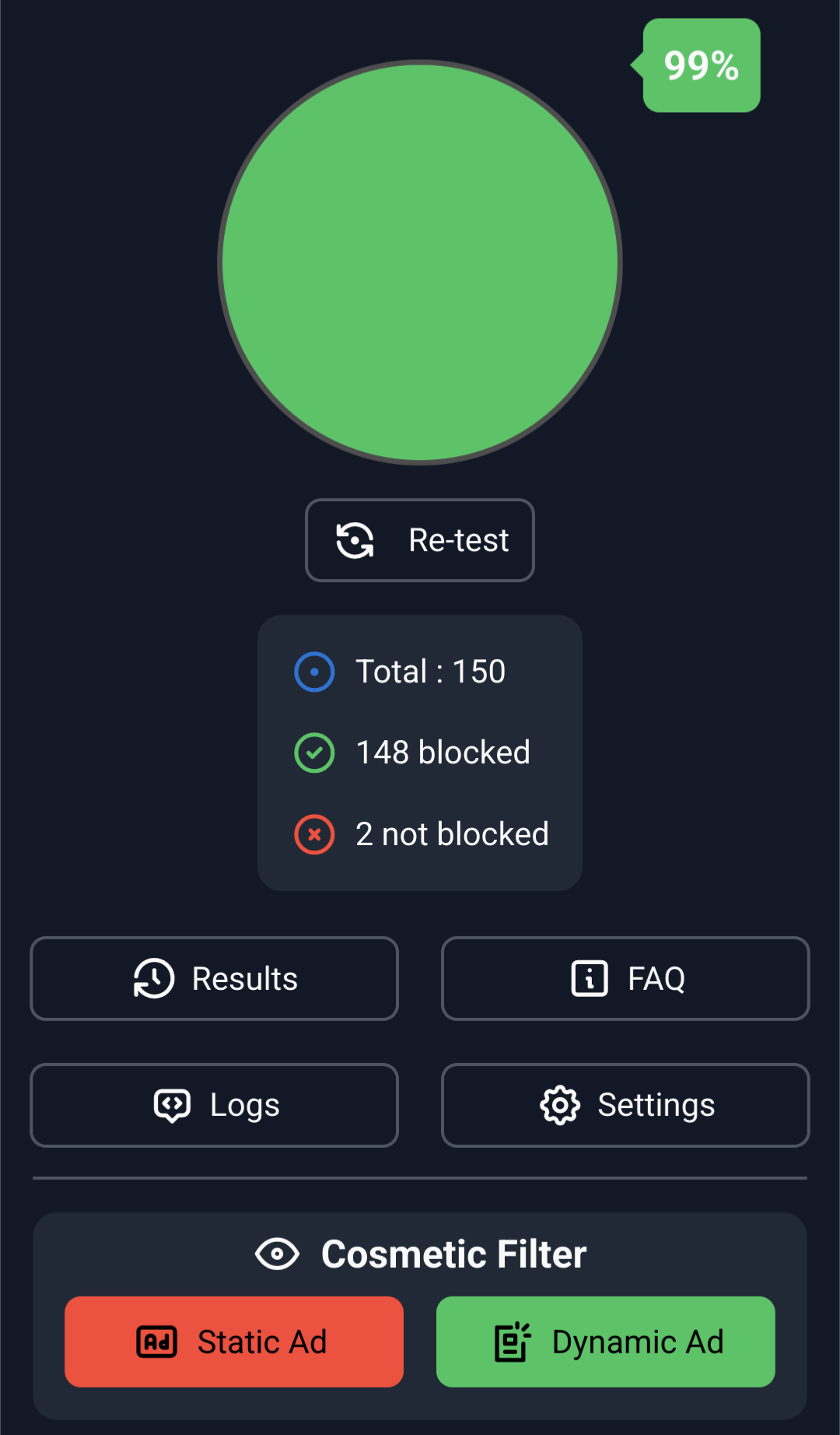- 1 Post
- 30 Comments
Anyone is welcome to install an AV on their device if they so choose. I was more alluding to the fact that there are many things you should be doing to prevent malicious programs from running on your computer in the first place. By the time it makes it onto your system you’re really just hoping that an AV would happen to catch it.
As long as you aren’t backing up your tokens to the cloud they’re all going to be functionally equivalent in terms of your data privacy outside of intentionally malicious apps. I mean that in the sense that no authenticator app should be sending your tokens anywhere on the internet. Use common sense when it comes to installing Google or Microsoft’s authenticator apps.
You should really question why you need this to begin with…but you can look at https://f-droid.org/packages/us.spotco.malwarescanner/

I’m not 100% sure but that probably means your ad blocker doesn’t block “acceptable ads”. It can be a setting buried somewhere, if at all. Again, I’m not familiar with exactly your adblocker and the partner.ads.js but that’s just what I would guess.
If you’re on iPhone I’ve previously had success with AdGuard and they also have a good reputation around here.
EDIT: I was completely wrong. It looks to be a YouTube thing for loading ads. If it’s blocked it could potentially break YouTube. It could only be possible to block it using something like uBlock which I assume you cannot run. You may be able to block it if you can add rules in 1Block specifically for it.

You’re looking for https://d3ward.github.io/toolz/adblock.html
EDIT: just expanded comments and see it was already solved. leaving the link visible if anyone wants it

Exactly. It does feel like they’re losing their focus. It’s especially noticeable when it comes to feature parity across devices and basic things that never get fixed.
I understand they probably have “different teams” working on the different products which a lot of companies use as a cover to say that the resources spent on the new projects don’t “take away” from the old ones. We can see how that has turned out in the video game industry where they can pump out microtransactions on a broken game.

You definitely have a point with the public facing posts. However, I will disagree with you on two points.
- “Harmful content” does not seem to apply here as the article implies that specifically posts criticizing government policies were flagged.
- Even so, harmful content could just as well be classified through existing procedures such as members of the public filing complaints rather than simply “keeping score”.
It’s a bit different when your employer is the government as they should be held to a higher standard.

While you can find examples of companies doing it correctly, it’s also easy to find companies who do not. Also, some update theirs seemingly daily but don’t actually state this. Sure, you can check and see that it was updated “today”, but what if it doesn’t get updated and you don’t know its “typically” updated daily. Again, no date for the next update.
These are all examples of companies who do not explicitly specify when the next update will be: kagi.com/privacy nordvpn.com/security-efforts/ cloudflare.com/transparency/

What do you mean by a failed warrant canary? In most cases there is no clear failure because there’s no clear plan in place to maintain them.
For example, if a website has a statement “we have received 0 warrants”. When was that published? Yesterday? A year ago? More? Even if it has a date, say 6 months ago. What does that mean? That they only update it every year? Or maybe there were meant to update it they just forgot, maybe they aren’t allowed to update it due to a gag order.
Due to the way each website does things differently with no clear guidelines, there isn’t actually a defined failure case.

This is a great idea! I wish more websites did warrant canaries, and those that do often fail to maintain them or plan for the case when a gag order prevents them from updating an existing canary. The only thing I would suggest is making it more clear that being in an alpha stage means that the product should not be relied upon in critical situations.
- @stifle867@programming.dev to
 English
English - •
- programming.dev
- •
- 1Y
- •

Oh you’re talking about AdGuard VPN not solely the main AdGuard product. Definitely not ideal. It doesn’t offer the same level of features as my current VPN who offers ad blocking anyway. Not to mention a few suspicious quotes from their website:
AdGuard VPN protocol uses the most secure and fast encryption algorithm to date – AES-256
From the very outset, we resolved to develop and deploy an in-house VPN protocol instead of picking a canned solution — that’d be too easy
We are going to make our protocol implementation publicly available in the future. Sadly, right now we don’t have enough time to prepare the project
we collect data about how you interact with our services, how much traffic you’ve used, and for how long have you been using our services
ADGUARD SOFTWARE LIMITED is a company registered in Nicosia, Cyprus, registered office is at Klimentos 41-43, KLIMENTOS TOWER, Flat/Office 25, 1061, Nicosia, Cyprus and acts as the data controller when processing your data
Considering Cyprus telecommunications laws it doesn’t seem like the safest place to headquarter a telecommunications privacy company.

After I posted my comment I found this https://protonvpn.com/support/linux-prerelease/
To reply to your comment: they do send out emails regarding product development occasionally but there’s no publicly available “roadmap”. I can understand why as development times are hard to predict, so I don’t fault them for that.
I can say that even though they are majorly updating things every week, they do make constant progress and release new products. I’ve been a subscriber for years, back when it was only “ProtonMail”.
Now we have Proton Mail, VPN, Calendar, Drive, and Proton Pass. I’m glad my money has been supporting the vision and development of all these great privacy-first services. For me that’s why I have been a loyal customer all these years.

That’s not what I’m talking about. I meant to say that AdGuard on mobile (Android) runs by pretending to be a VPN in order to intercept all connections and filter the ads out of them. This works great to remove ads in apps, etc.
However, because it hooks into the VPN interface you can’t then run another VPN (for example Proton VPN) because Android only allows one VPN to run at any time.

Expensive compared to what? Compared to the price of a coffee? Compared to the price of your privacy? Compared to your disposable income? Compared to competing services?
Look at the value you get:
1Password costs $2.99 per month
ExpressVPN $12.95 per month
NordLocker $7.99 per month
Total $23.93 per month and you do not get email or calendar included
Proton Unlimited $12.99 per month with email and calendar (and future services)
Netflix standard plan $15.49 per month

The biggest issue for me is the VPN client support. It “works” but lacks some notable features such as port forwarding for torrents.
I simply live without this feature and do not use the client at all. I have wireguard installed with the configs you download from the website as a starting point. I also set it up so that connections without the wireguard interface are blocked by default except for within my local network and it’s hooked into systemd so I can manually start and stop it. This was non-trivial and I don’t suggest doing this.

Another benefit of using uBlock Origin is the ability to use the cosmetic filters so you can remove elements from the page that aren’t served as ads in the typical sense. As an example when you’re reading an article and there’s an obnoxious box half way through that says CONSIDER SUBSCRIBING etc. It’s not loading any external resources, it’s just inlined HTML. But you can enter element picker mode and if you are able to uniquely target that element you can filter it out.


With uBlock Origin you can achieve 99%+ pretty easily.